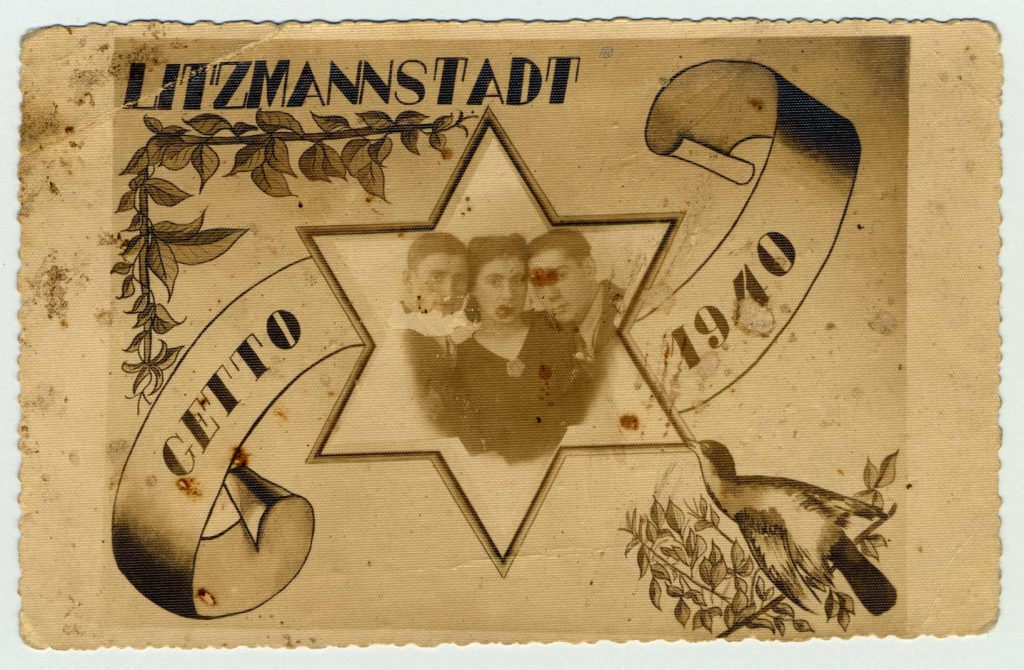Module 3: Religion & Culture
Observance as Resistance

Religious observance was one way that some Jews defied their persecutors. As the Nazis and others attempted to destroy Jewish life in Europe, both literally and in the religious and cultural senses, some maintained or strengthened their religiosity to protect their identities and show their pride in their roots. Religious observance would have no doubt kept alive the spirits of many Jews, as practicing and observing Jewish customs and holidays was familiar and had the potential to promote community resilience and unity. Below you will explore some examples of how religious observance served as a sign of both resistance and strength.
Truda Rosenberg
Kol Nidre
Because the Torah places great importance on keeping one’s promises and vows, Kol Nidre is a prayer that annuls vows and releases us from obligations that we did not mean to agree to or agreed to under coercive pressure. Kol Nidre is sung on Yom Kippur to usher in the Day of Atonement, during which we confess our sins and seek forgiveness from God, who cleanses us from our sins.
Truda Rosenberg tells her story of escaping from a cattle car on its way to the Belzec concentration camp. In September 1942, Truda and two of her aunts were rounded up into a Lvov schoolyard where they were taken on a Death March and subsequently put on a cattle car taking them to Belzec where most of her family was killed. Truda managed to jump out of a window in the cattle car. Right before she jumped, one of her aunts began to chant Kol Nidre so that if Truda was unable to live as a Jew her shortcomings would be forgiven.
Oral History: Cantor Moshe Kraus
Cantor Kraus, born in 1923 in Uzhorod, Czechoslovakia, survived Bor labor camp (Serbia) and the Bergen-Belsen concentration camp. In this clip we hear how Cantor Moshe Kraus survived Bergen Belsen. Shortly after arriving in the camp, he heard fellow prisoners singing Jewish (Yiddish) songs in the barracks. As a cantor, Moshe Kraus was a trained singer who had performed to large audiences across Europe. Without telling them who he was, he decided to sing “happy songs” to the prisoners to uplift their spirits. The Commandant of the camp, Hauptsturmführer Josef Kraemer, overheard him. Shortly afterwards Cantor Kraus was taken from the camp to the Commandant’s house some distance away. Cantor Kraus describes how the Commandant demanded he sing for him. Kraemer was so impressed that Kraus was ordered to come each Sunday to perform for him at his home. Over the next 11 months Cantor Kraus returned each Sunday to sing. He sang and survived. To see the complete half hour video, please click here.
Cantor Kraus’ Memoir
In this excerpt from his memoir, Cantor Kraus recounts the events of Erev Rosh Hashana in the Holland barracks of Bergen-Belsen. That night, 1,400 Hungarian Jewish boys celebrated Rosh Hashana. Cantor Kraus went with a Rabbi to the barracks and blew the shofar and sang for the boys, who joined in and began to dance. The next day the boys sang as they walked to the train that would take them to their deaths.
The Life of Moshele Der Zinger: How My Singing Saved My Life
Oral History: Saul Reichert
In this video Saul Reichert recounts Rosh Hashana and Yom Kippur services in Birkenau and how these celebrations helped him get through the war. He explains how the prisoners had found a shofar, tallisim and a cantor to conduct the services. During the services, people kept watch to make sure the Nazi guards did not catch them holding religious services.
Oral History: Joseph Cooper
In this video, Joseph Cooper speaks about giving a Kol Nidre service during Yom Kippur in the Sosnowiec concentration camp. He conducted the service using a prayer book another prisoner had found in the clothing of prisoners who had arrived from Auschwitz.
Oral History: Esther Jungreis
In this video, Esther Jungreis speaks about exchanging cigarettes for a shofar in the German camp of Bergen-Belsen. She explains how the men of the camp stopped working when they heard the blowing of the shofar and began to recite the blessing.

